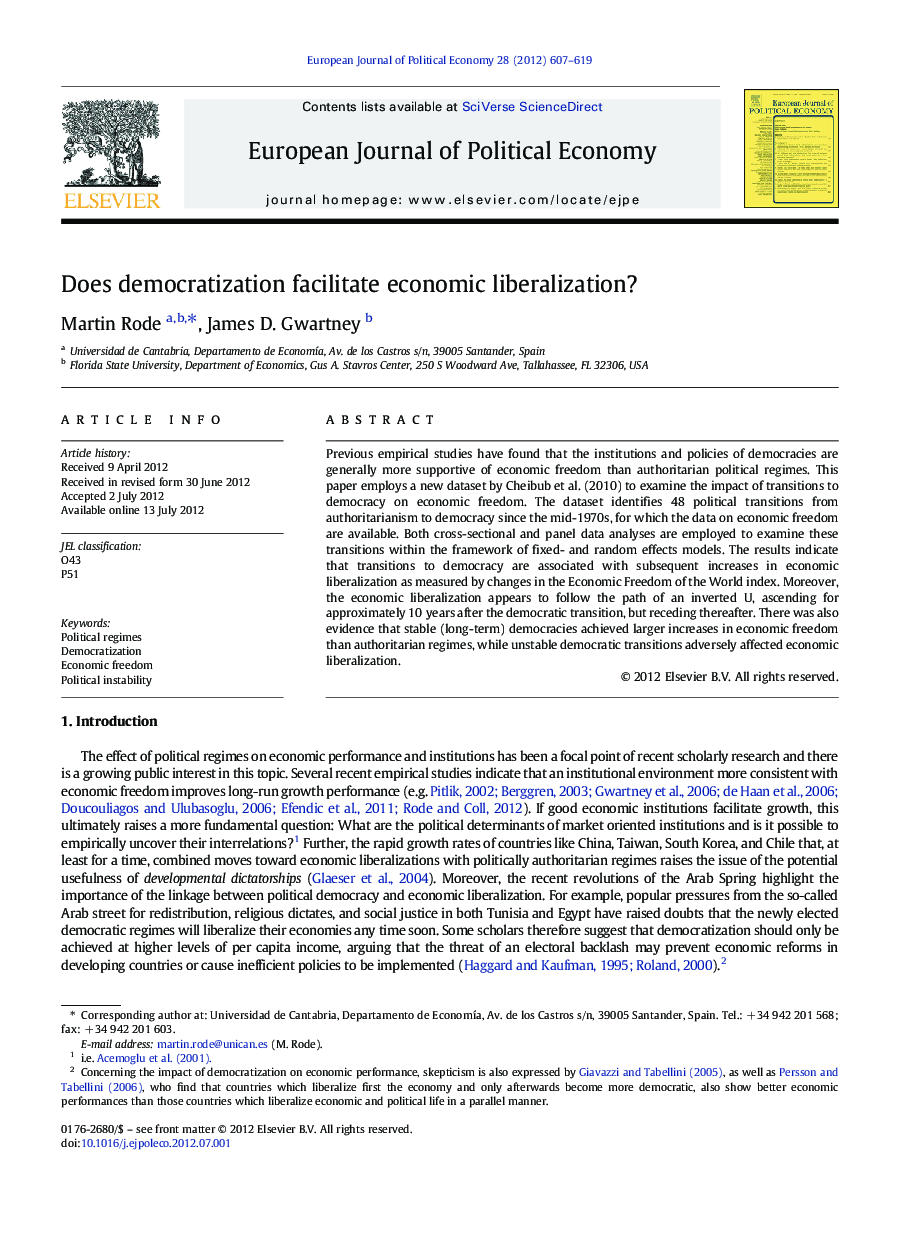| Article ID | Journal | Published Year | Pages | File Type |
|---|---|---|---|---|
| 5068142 | European Journal of Political Economy | 2012 | 13 Pages |
Previous empirical studies have found that the institutions and policies of democracies are generally more supportive of economic freedom than authoritarian political regimes. This paper employs a new dataset by Cheibub et al. (2010) to examine the impact of transitions to democracy on economic freedom. The dataset identifies 48 political transitions from authoritarianism to democracy since the mid-1970s, for which the data on economic freedom are available. Both cross-sectional and panel data analyses are employed to examine these transitions within the framework of fixed- and random effects models. The results indicate that transitions to democracy are associated with subsequent increases in economic liberalization as measured by changes in the Economic Freedom of the World index. Moreover, the economic liberalization appears to follow the path of an inverted U, ascending for approximately 10Â years after the democratic transition, but receding thereafter. There was also evidence that stable (long-term) democracies achieved larger increases in economic freedom than authoritarian regimes, while unstable democratic transitions adversely affected economic liberalization.
⺠Democratic transition makes economic liberalization more likely. ⺠Unstable democratic transitions adversely affect economic liberalization. ⺠Liberalization follows an inverted U, ascending ten years, receding thereafter.
